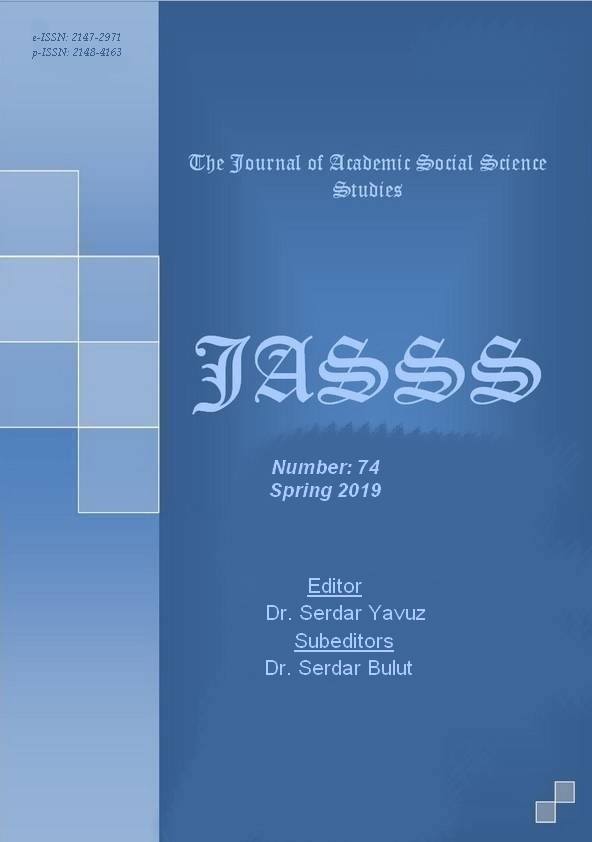GELENEKSEL CAMİ MÛSİKÎSİ TAVRIYLA BESTELENEN ESMÂÜ’L HÜSNÂLAR (İLHAN TOK’UN “ESMAÜ’L HÜSNÂ BESTESİ” ÖRNEĞİ)
Author :
Abstract
İslâm dininde Yüce yaratıcının en güzel doksan dokuz isminden oluşan Esmâü’l Hüsnâ’nın zikredilmesinin önemi büyüktür. Dolayısı ile bu İsimlerin zikredilmesi, anılması, sayılması ve ezberlenmesi tavsiye edilmiştir. Bu makale Allah’ın en güzel isim ve sıfatlarından oluşan Esmâü’l Hüsnâ’nın zikredilmesinde Türk Din Mûsikîsi’nin katkısını ortaya koymak ve yüce yaratıcının doksan dokuz isminin belli usûl ve nâğmelerle dillerde meşk edilerek zikredilmesine, anılmasına katkı sağlamaktır. Bu sebeple, geçmişteki büyük üstatların meşk ve zikir meclislerindeki manevi havanın, yapılan meşklerin ve zikirlerin neticesinde, tecrübe edilen tavrın paylaşılması için, o meclislerde bulunmuş birisi olarak Hafız ve bestekâr İlhan Tok’un Geleneksel Cami Mûsikîsi tavrıyla bestelediği “Esmâü’l Hüsnâ” da örnek eser olarak makale çalışmasının sonuna eklenmiştir. Üzülerek belirtmek gerekir ki meşk geleneğinin yaşatılmasında ve silsile yoluyla günümüze kadar gelmesinde büyük katkıları olan mûsikîşinas üstatların yaşları itibari ile sayıları gün geçtikçe azalmaktadır. Dolayısı ile bu alanda araştırma yapanların meşk geleneğinin hayatta olan temsilcilerinden bizzat istifade ederek eserlerini ortaya çıkarmak suretiyle yapacakları akademik bir çalışma, hem meşk geleneğinin gelecek kuşaklara aktarılmasına hem de geleneğin temsilcilerine olan vefa borcunun ödenmesine vesile olacaktır. Bu amaçla yapılan çalışmada öncelikle Esmâü’l Hüsnâ ve zikir kavramlarının ne anlama geldiği, Kur’an ve hadisler ışığında Esmaların zikredilmesinin önemi vurgulanırken, Türk Din Mûsikîsi zikir formunun, Esma-zikir ilişkisi içerisindeki yerinin ne olduğuna da açıklama getirilmiştir. Ayrıca Cami mûsikîsinde geleneksel tavır tanımlanırken geleneksel tavrın yaşatılmasında Esmâü’l Hüsnâ eserinin katkısı da açıklanmıştır.
Keywords
Abstract
Chanting Esmâü’lHüsnâ (names of Allah) which consists of ninety-nine perfects names of the Holy Creator has giant importance in the Islamic religion. For that reason, it was advised to chant, memorialize, number and memorize those names. This article aims to reveal the contribution of Turkish Religious Music to the chanting of Esmâü’lHüsna which consists of the best names and adjectives of Allah and provide contribution to the oral chanting, practicing and memorializing of ninety-nine names of the Holy Creator through definite tempos and melodies. Therefore, the “Esmâü’lHüsnâ” composed by İlhanTok who was a hafiz (person who memorizes Quran) and a composer and attendant of practices and the gathering of invocation was chosen as the sampling piece of work and was attached at the end of the in order to share the attitudes experienced thanks to the tones in the gathering of practice and invocation held by the great masters in the past. He employed Traditional Mosque Music in his works. We regret to say that the number of the musical loving teachers who had great contributions to the sustentation of the custom of practicing music and carry out to the current time through a sequence is gradually decreasing day by day. Thus, a contribution will be provided through this study to both transfer of the tradition of practice to future generations and perform a duty of loyalty to the representatives of this tradition through revealing their works and benefit from the living representatives of the tradition of practicing music. In this study conducted for that purpose, primarily, the meaning of the terms and concepts of Esmâü’lHüsnâ and invocation and significance of chanting Esma’s (the names of Allah) in consideration of Quran and hadith and the place of invocation form of Turkish Religious Music in the relationships between Esma and invocation were also explained. Moreover, the contribution of the work called Esmâü’lHüsnâ to the sustentation of traditional attitude was also explained while defining the traditional attitude in the Mosque Music.





